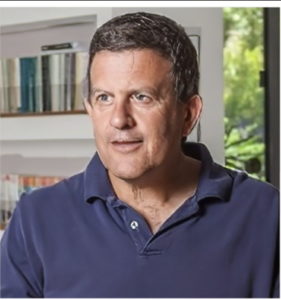President Donald Trump’s Middle East peace plan is a non-starter, mainly because it was drawn up without the Palestinians’ input, says a prominent Israeli political scientist.
“I’m not impressed, to say the least,” said Guy Ben-Porat, chairperson of the department of politics and government at Ben-Gurion University of the Negev, while in Montreal on Feb. 10.
He does not think the highly-anticipated plan will be implemented because “if you’re a Palestinian, and you’re not involved in this plan of the U.S. administration and the Israeli administration, a plan that’s put in your face, what are the chances it will be accepted?
“We have to put ourselves in the place of the other side … Nobody is going anywhere. We have to talk to real people on the ground,” he said at a public event, sponsored by the Canadian Associates of Ben-Gurion University.
The plan and its timing have as much to do with Prime Minister Benjamin Netanyahu’s wish to escape being tried on corruption charges as finding peace, he said.
The Israeli-born Ben-Porat, 52, said he would consider leaving Israel if the country annexed territory in the West Bank and the Jordan Valley without extending civil rights to Arabs there.
Ben-Porat devoted most of his talk to his chief expertise: issues of religion and state in Israel. Both the secular and the religious are growing in Israeli society, he believes.

The “very limited” secularization of public life is translating into greater liberalism, he said. For example, Avigdor Lieberman, leader of the hardline secularist Yisrael Beiteinu party, is promising to keep Israel “liberal” in the current electoral campaign, he pointed out.
Ben-Porat defines liberalism as a commitment to religious pluralism, better treatment of the non-Jewish minority and other democratic values, he said.
The average Israeli today is more tolerant of, for example, gay rights, co-habitation without marriage, and single motherhood, he said. At the same time, there has been a “religious resurgence” among others that has resulted in a “very tense period” bordering on a crisis among Jewish Israelis, he thinks.
Ben-Porat, author of the 2013 book Between State and Synagogue: The Secularization of Modern Israel, favours religious pluralism that would end the “Orthodox monopoly” over Jewish marriage, burials and divorce and extend equal rights to non-Orthodox denominations.
Israel is unlike other democracies, he said, in that there is no separation of “church and state” – religion still has an outsized influence in politics and public life. This is the legacy of the “status quo” bargain David Ben-Gurion made with the Orthodox community at the founding of the state, he explained.
For decades, Israelis, the majority of whom identified as non-religious, could live with that arrangement. But, the influx of a million Russians, almost all secular and often not halakhically Jewish, changed that dramatically.
So has the rise of globalization and consumerism; busy, more affluent Israelis want to be able to shop on Saturdays and they want non-kosher food readily available, he continued.
Issues like service by the Orthodox in the military, the opening of stores on Shabbat, and the role of religion in public schools are tearing Israelis apart as they debate how the state should or should not evolve, Ben-Porat said.
While in practice things are changing, they are not officially, he said. “Everything is happening under the radar; Israelis go around the law,” for example, getting civilly married abroad, including gay couples, or finding an underground supply of pork.
This continuing Orthodox control is straining relations between Israel and the Diaspora, especially North America, he feels.
Ben-Porat, who was a visiting professor at Brown University last year, said he found BDS “a minor issue” among students in the United States.
Rather, “they do not want to have anything to do with Israel, they have a hard time identifying with Israel as it is today, when it denies rights to Reform Jews and does not give full rights to non-Jews.”
